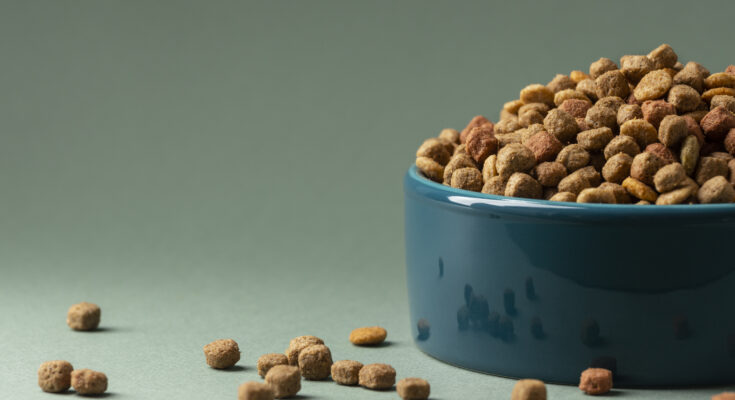When it comes to our feline friends, providing them with the best cat food is essential for their overall health and wellbeing. However, with countless options available in the market, choosing the right one can be a daunting task for cat owners. In this article, we’ll delve into the intricacies of cat nutrition, explore the various types of cat food, and offer tips on selecting the ideal option for your furry companion.
Table of Contents
Understanding Cat Nutrition
Before delving into the specifics of cat food, it’s crucial to understand the nutritional requirements of our feline friends. Cats are obligate carnivores, meaning they require a diet rich in animal-based proteins to thrive. Additionally, they need essential nutrients such as taurine, vitamin A, and arachidonic acid for optimal health.
Types of Cat Food
Cat food comes in various forms, each with its own set of benefits and considerations. Dry cat food, also known as kibble, is convenient and cost-effective, while wet cat food provides hydration and palatability. Raw cat food and homemade options offer complete control over ingredients but require careful preparation to ensure nutritional balance.
Key Factors to Consider
When choosing the best cat food for your furry friend, several factors should be taken into account. Firstly, opt for products made with high-quality ingredients, free from fillers and artificial additives. Look for cat foods that meet the standards set by the Association of American Feed Control Officials (AAFCO) to ensure they provide complete and balanced nutrition. Additionally, consider your cat’s specific dietary needs, such as age, weight, and any underlying health conditions.
Top Brands in the Market
There is no shortage of cat food brands in the market, each claiming to offer the best nutrition for your cat. Some popular options include Royal Canin, Hill’s Science Diet, and Blue Buffalo. However, it’s essential to research each brand thoroughly and consult with your veterinarian to determine the best fit for your cat.

Tips for Choosing the Right Cat Food
When navigating the aisles of pet food stores, it’s essential to know how to decipher cat food labels effectively. Look for products that list animal proteins as the first ingredients and avoid those containing excessive fillers and by-products. Additionally, consider consulting with your veterinarian to ensure you’re selecting the right food based on your cat’s individual needs.
Common Myths about Cat Food
There are many misconceptions surrounding cat food, from the idea that dry food helps clean teeth to the notion that all cats should follow a grain-free diet. However, it’s essential to separate fact from fiction and base dietary decisions on scientific evidence and expert recommendations.
Homemade vs. Commercial Cat Food
While some cat owners opt to prepare homemade meals for their furry companions, others prefer the convenience of commercial cat food. Both options have their pros and cons, and the decision ultimately depends on factors such as time, budget, and nutritional expertise.
Specialty Diets for Cats
In recent years, specialty diets such as grain-free and limited ingredient options have gained popularity among cat owners. Additionally, prescription diets formulated to manage specific health conditions are available by veterinary recommendation. However, it’s crucial to consult with a veterinarian before making any significant dietary changes for your cat.
Transitioning Your Cat to a New Food
When introducing a new cat food to your furry friend, it’s essential to do so gradually to avoid digestive upset. Start by mixing small amounts of the new food with their current diet, gradually increasing the proportion over several days. Monitor your cat for any signs of intolerance or allergy during the transition period.

Cost Considerations
While quality should be a top priority when selecting cat food, cost is undoubtedly a factor for many pet owners. Fortunately, there are options available to suit every budget, from affordable supermarket brands to premium products sold exclusively through veterinarians.
Customer Reviews and Recommendations
Before making a purchase, consider reading customer reviews and seeking recommendations from fellow cat owners. While individual experiences may vary, peer feedback can provide valuable insights into the palatability and efficacy of different cat food brands.
Environmental Impact of Cat Food
In addition to considering the nutritional value of cat food, it’s essential to think about its environmental impact. Look for brands that prioritize sustainability and opt for packaging that’s recyclable or biodegradable whenever possible.
Conclusion
Choosing the best cat food for your furry companion is a decision that requires careful consideration. By understanding the nutritional needs of cats, researching different options, and consulting with your veterinarian, you can ensure that your feline friend receives the nourishment they need to thrive.
FAQs
- What are the signs that my cat is not liking their food?Signs that your cat may not be enjoying their food include refusing to eat, excessive licking of lips, and vomiting after meals. If you notice any of these signs, consider trying a different food or consulting with your veterinarian.
- Can I mix different types of cat food together?Mixing different types of cat food can be done, but it’s essential to do so gradually to avoid digestive upset. Start by mixing small amounts of the new food with their current diet and gradually increase the proportion over time.
- Is it okay to feed my cat solely on dry food?While dry cat food can be a convenient option, it’s essential to ensure that your cat receives an adequate amount of moisture in their diet. Consider supplementing with wet food or providing fresh water to prevent dehydration.
- How often should I change my cat’s food?It’s generally recommended to stick with a consistent diet for your cat to avoid digestive upset. However, if you decide to switch foods, do so gradually over the course of several days to minimize any potential issues.
- Are there any natural alternatives to commercial cat food?Some cat owners opt to prepare homemade meals for their cats using fresh, natural ingredients. However, it’s crucial to ensure that these meals provide complete and balanced nutrition, which may require consultation with a veterinary nutritionist.

